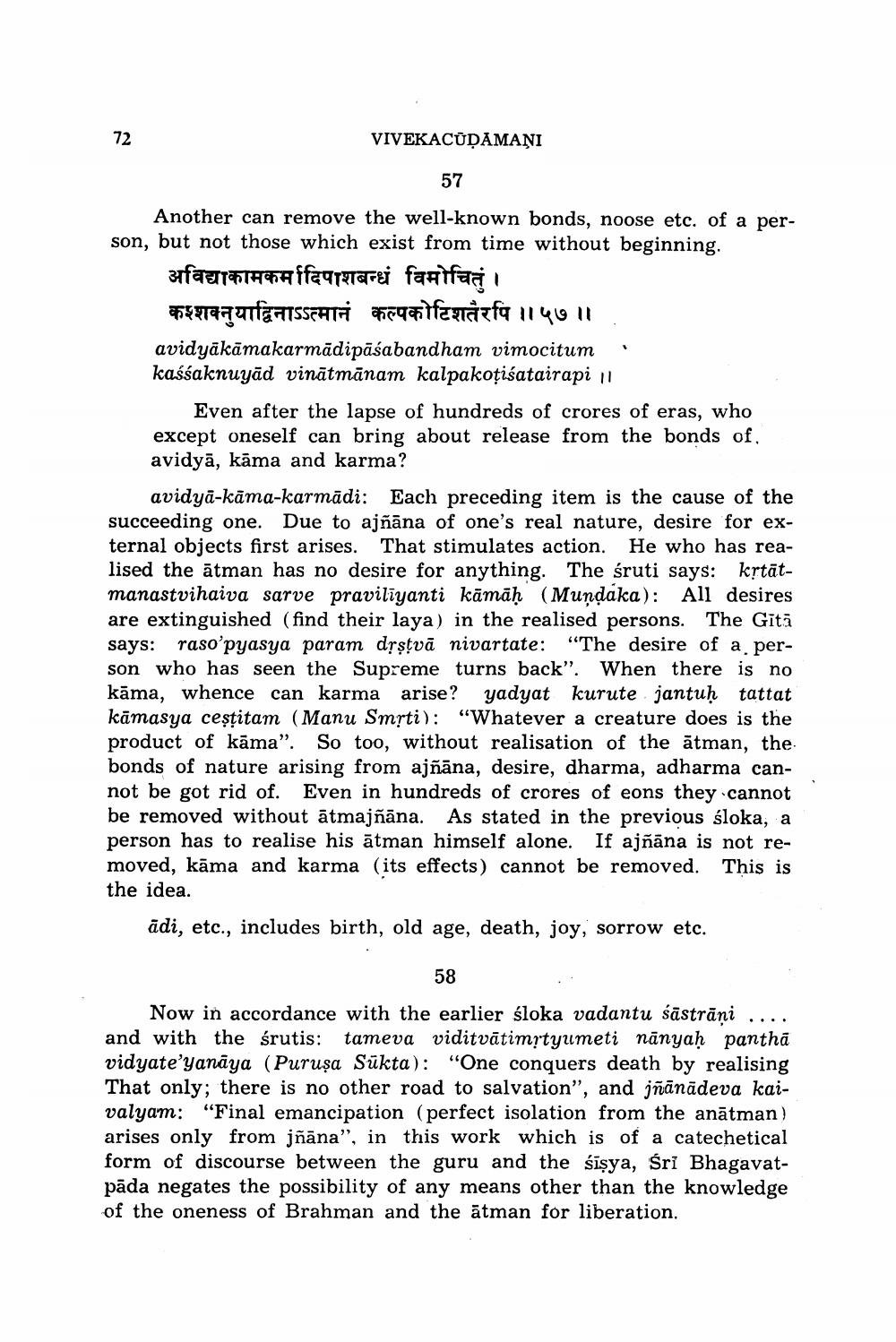________________
VIVEKACŪDAMAŅI
57
Another can remove the well-known bonds, noose etc. of a person, but not those which exist from time without beginning.
अविद्याकामकर्मादिपाशबन्धं विमोचितं । कश्शक्नुयाद्विनाऽऽत्मानं कल्पकोटिशतैरपि ॥५७ ॥ .. avidyākāmakarmādipāśabandham vimocitum kaśśaknuyād vinātmānam kalpakoțiśatairapi 11
Even after the lapse of hundreds of crores of eras, who except oneself can bring about release from the bonds of. avidyā, kāma and karma?
avidyā-kāma-karmādi: Each preceding item is the cause of the succeeding one. Due to ajñāna of one's real nature, desire for external objects first arises. That stimulates action. He who has realised the ātman has no desire for anything. The śruti says: krtātmanastvihaiva sarve pravilīyanti kāmāḥ (Mundaka): All desires are extinguished (find their laya) in the realised persons. The Gitā says: raso’pyasya param dřstvā nivartate: "The desire of a person who has seen the Supreme turns back". When there is no kāma, whence can karma arise? yadyat kurute jantuḥ tattat kāmasya cestitam (Manu Smrti): “Whatever a creature does is the product of kāma". So too, without realisation of the ātman, the bonds of nature arising from ajñāna, desire, dharma, adharma cannot be got rid of. Even in hundreds of crores of eons they cannot be removed without ātmajñāna. As stated in the previous sloka, a person has to realise his ātman himself alone. If ajñāna is not removed, kāma and karma (its effects) cannot be removed. This is the idea.
ādi, etc., includes birth, old age, death, joy, sorrow etc.
58
Now in accordance with the earlier śloka vadantu śāstrāni .... and with the śrutis: tameva viditvātimrtyumeti nānyah pantha vidyate'Yanāya (Puruşa Sūkta): “One conquers death by realising That only; there is no other road to salvation", and jñānādeva kaivalyam: "Final emancipation (perfect isolation from the anātman) arises only from jñāna", in this work which is of a catechetical form of discourse between the guru and the sișya, sri Bhagavatpāda negates the possibility of any means other than the knowledge of the oneness of Brahman and the ātman for liberation.




